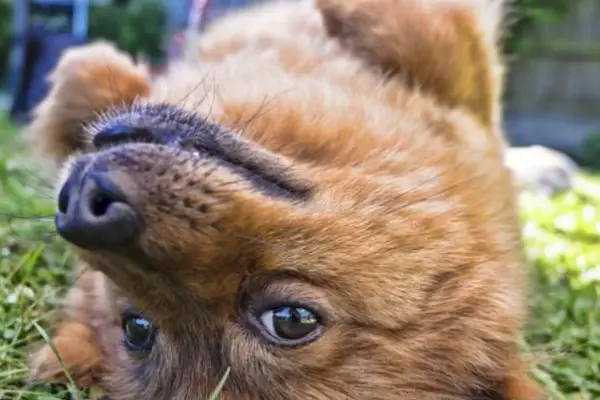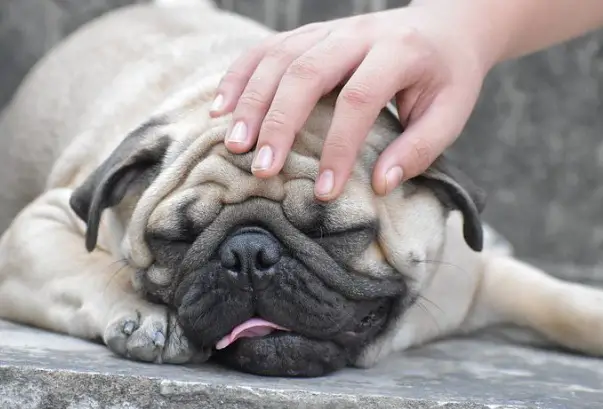10 Common Senior Border Collie Problems

Senior border collie problems are thoughts for every border collie owner and that is exactly what we will be discussing in this post.
Border collies are high-energy dogs that stay active into their senior years. However, there is usually a decline that can be noticeable.
Even by the time they enter their senior years, these dogs have a passion for work and exercise, so you shouldn’t be surprised to find them still jumping fences and playing tricks.
Senior Border Collie Problems
Here are some of the most prevalent border collie senior issues to be aware of:
1. Hair shedding at the sleeping location
Even though border collies are not heavy shedders, you should expect to see more shedding in their senior years especially when they wake up from their sleeping spot in the morning.
Border collies do shed for a variety of reasons, the majority of which may be easily resolved with veterinary intervention.
This is an ancient border collie issue that you must learn to live with if your border collie continues to shed excessively after obtaining treatment from your veterinarian.
You’ll know your senior border collie is getting older if you notice a handful of fur from where he got up.
Expect more shedding as your border collie gets older, and learn how to keep your border collie from shedding.
2. Repeated loss of coordination
The loss of balance and motor function is the most common symptom in senior border collies, and there is little you can do about it.
Your border collie may appear shaky or disoriented when he or she sits up and wanders around, indicating that the dog is losing coordination.
Restrict your border collie to a small, tranquil, and comfortable space as much as possible, and eliminate anything they could bump into or knock over.
Providing them with a secure environment as well as any assistance they may require.
3. Increased dental issues
Border collies are particularly prone to dental problems, thus brushing their teeth should be done often.
Plaque builds up over time, causing dental disease.
If left untreated, this can progress to gingivitis and, eventually, periodontal disease.
Your dog’s teeth and bone might be lost if a dental problem is left untreated for too long.
When border collies reach their senior years, they are more likely to have dental problems.
4. Progressive retinal atrophy
Progressive Retinal Atrophy is a condition that affects the retina of the eye.
It is a condition that kills the tissue in the retina of the eye over time.
Border collies who are unable to see at night may be the first signs of this condition.
The condition can eventually lead to blindness as it advances.
This condition can appear at any age, although it can also be recognized sooner.
Fortunately, Progressive Retinal Atrophy is not frequent in border collies and is not a serious health risk, but still occurs in their senior years.
5. Reduced mobility rate
As your border collie becomes older, his or her mobility will deteriorate at a faster rate than typical.
As the border collie grows older, his or her strength may wane to the point where he or she can no longer stand for as long.
Your border collie’s legs may grow tired, making climbing stairs or crossing slick surfaces problematic.
The capacity of your border collie to stand and walk may decline over time, and some may even have difficulty lifting their heads.
A reduction in movement pace is one of the final steps before your border collie gives up.
This will be obvious, and you should anticipate seeing it.
6. Weaker joint issues
This is one of the most prevalent symptoms of a problem in an elderly border collie.
This can begin as early as 10 to 15 years old, and you should be cautious at this age.
If you see any weaker joints in your border collie, you should always consult your veterinarian.
When your border collie’s movement rate decreases in his later years, you’ll notice this.
When you touch his joints again, he may show signals of discomfort.
7. Continuous reduction in appetite
As a border collie’s body cells age, its internal organs degenerate, which might lead to your border collie rejecting meals on a frequent basis.
Most ailments can change your border collie’s appetite, so this isn’t always an indication that he’s approaching retirement.
Border collies, on the other hand, often stop eating or change their eating habits as they age.
Changes in your border collie’s eating patterns should be taken carefully since they might indicate that they are becoming older.
8. Increased risk of arthritis
Arthritis is a typical concern among border collie owners as they become older, this can lead to border collie depression.
Arthritis is a disorder that affects the joints of border collies and may be quite unpleasant if not caught early.
Make sure you take your border collie outside and keep him on a regular activity schedule to prevent him from developing this illness.
In certain cases, more activities might assist with arthritis; however, if your veterinarian advises medication, make sure you follow their recommendations.
Furthermore, many border collie owners choose to purchase a few pet products to address this issue.
It will feel better if your border collie sleeps on a pet bed warmer or an orthopedic bed, for example.
Heating pads can also help, but keep your border collie safe from burns and other accidents.
9. Collie eye anomaly
Another inherited health concern noticed in border collies is Collie Eye Anomaly.
Because it is a congenital condition, the border collie will be affected from birth.
Collie eye abnormality is caused by a gene mutation that causes aberrant eye development. It is inherited from a parent who has the same gene mutation.
Some border collies can go their whole lives without displaying any signs, while in extreme cases, blindness can result.
Cloudy eyes, smaller than usual eyeballs, and noticeably sunken eyeballs are all signs that your border collie may have a collie eye anomaly.
The signs and symptoms appear in phases, with some being more obvious than others.
10. Risk of urinary tract issues
Your border collie’s urinary system is in charge of removing waste from the body as well as managing water and electrolytes.
The urinary system also aids in the regulation of blood pressure and the digestion of vitamin D, which is essential for a healthy immune system.
Some urinary tract issues are caused by genetics, while others are caused by trauma, sickness, or chemical exposure.
Your border collie may have bladder stones or a urinary tract infection if he pees a lot, has a lot of bladder infections, and starts having “accidents” in the home as they get older.
How to care for an older border collie
The following are some of the most prevalent methods for caring for an aged border collie:
- As your border collie gets older, reduce his physical activities.
- As your border collie gets older, ensure sure his diet is well-balanced and healthy, and make any necessary nutritional modifications.
- Supplements can aid in the development of your border collie’s immune system as they become older.
- Make sure your border collie has access to clean, fresh water at all times.
- Artificial preservatives, fillers, and a lot of wheat and soy in your border collie’s diet should all be avoided as they become older.
- To help your border collie maintain a high level of energy, feed him a high-protein dinner.
- As much as possible, keep your senior border collie out of stressful circumstances.
- Make a comfortable and relaxing resting spot for your border collie.
- Allow your border collie to sleep as much as he or she wants.
- Schedule frequent appointments with your veterinarian.




![Cancer In Beagles Symptoms [10 Potential Symptoms] Cancer In Beagles Symptoms](https://petcreeks.com/wp-content/uploads/2023/05/Cancer-In-Beagles-Symptoms-768x555.jpg)

